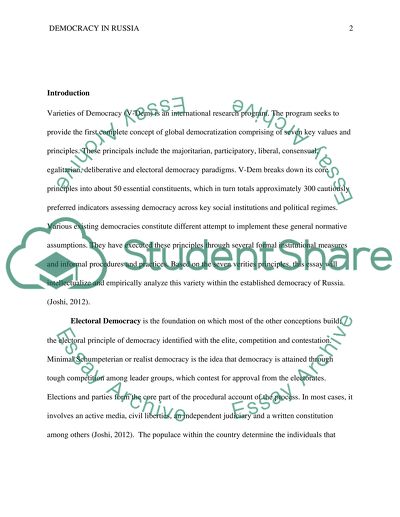Cite this document
(“Analyse the political regime of Russia and its level of democracy by Essay”, n.d.)
Analyse the political regime of Russia and its level of democracy by Essay. Retrieved from https://studentshare.org/social-science/1659247-analyse-the-political-regime-of-russia-and-its-level-of-democracy-by-using-the-varieties-of-democracy
Analyse the political regime of Russia and its level of democracy by Essay. Retrieved from https://studentshare.org/social-science/1659247-analyse-the-political-regime-of-russia-and-its-level-of-democracy-by-using-the-varieties-of-democracy
(Analyse the Political Regime of Russia and Its Level of Democracy by Essay)
Analyse the Political Regime of Russia and Its Level of Democracy by Essay. https://studentshare.org/social-science/1659247-analyse-the-political-regime-of-russia-and-its-level-of-democracy-by-using-the-varieties-of-democracy.
Analyse the Political Regime of Russia and Its Level of Democracy by Essay. https://studentshare.org/social-science/1659247-analyse-the-political-regime-of-russia-and-its-level-of-democracy-by-using-the-varieties-of-democracy.
“Analyse the Political Regime of Russia and Its Level of Democracy by Essay”, n.d. https://studentshare.org/social-science/1659247-analyse-the-political-regime-of-russia-and-its-level-of-democracy-by-using-the-varieties-of-democracy.


